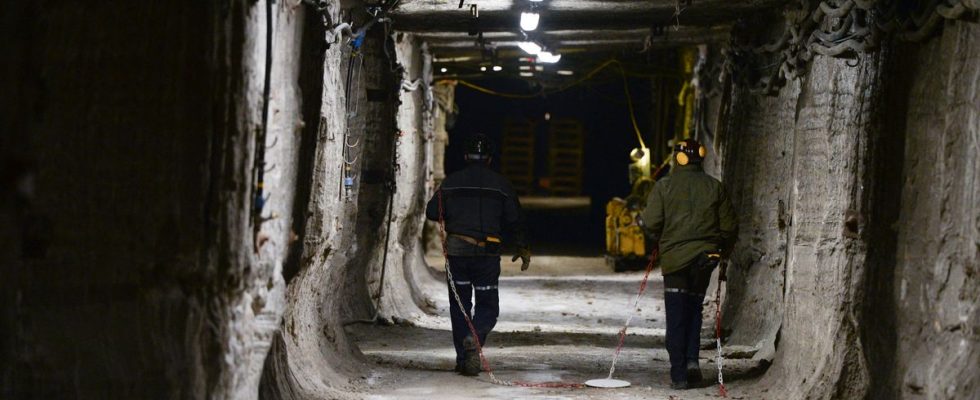Stocamine, new episode. The commission responsible for the public inquiry into the project to contain 42,000 tonnes of toxic waste in an old mine in Wittelsheim (Haut-Rhin), under the water table in Alsace, issued a favorable opinion with reservations, despite a “very large majority” of unfavorable opinions of the inhabitants.
The commission, chaired by the investigating commissioner Thierry Tournier, adds six reservations and two recommendations to its opinion on this project, which worries environmental associations about possible future pollution of the groundwater table, which supplies 80% of the Alsatian population. This opinion is written after the public inquiry conducted in April and May, which collected 1,571 observations from residents.
“The opinions in favor of the project can be counted on the fingers of one hand”, notes the commission. “The vast majority of the opinions expressed, in particular a petition taken up by 981 people, opposes the underground storage project for dangerous products. »
The storage of waste, initially presented as “reversible”, had been authorized by prefectural decree in 1997, for 30 years. “The commission can only understand the distrust of the population with regard to the recommended solution of containment of the waste on the current site for an unlimited period”, write the commissioners.
“A source of pollution for the groundwater”
The latter nevertheless give a “favorable opinion”, agreeing “with the opinion of the MDPA”, the company Mines de potasse d’Alsace, the project leader, on many points raised by the public. However, they are calling for “monitoring of the containment barriers” in the face of forecasts of future natural degradation of the mine, which is collapsing on itself, or “control of the flooding level” around the storage site.
They recommend the adoption of a “law to guarantee the implementation of site monitoring measures and their financing”, and “the acquisition by the State of all the land necessary for the proper management of the site”.
The investigating commissioners justify their opinion by the fact that the storage site, “if it is left as it is, will eventually constitute a source of pollution for the groundwater”, and that its condition “does not allow waste to be removed from storage”. They admit, however, that “removing the source of pollution would be the best solution”.
While a criminal investigation was opened by the Strasbourg public prosecutor’s office into the nature of the waste stored, and some residents were surprised at the administrative prosecution of the confinement project in this context, the commission is content to indicate that it has no information on the ongoing judicial investigation.
” Nothing changes “
This favorable opinion “proves that doing a public inquiry is bogus”, reacted Josiane Kieffer, member of the Destocamine collective, opposed to the confinement of waste. “This is the third public inquiry, each time there are plenty of opinions that mostly call for the waste to be taken out, but nothing changes”.
The government decided in January 2021 to permanently confine the 42,000 tonnes of toxic waste (arsenic, cyanide, asbestos, mercury, etc.) to the bottom of the mine. But the authorization to confine the waste had been canceled by the administrative justice.
A decree modifying the Environment Code had therefore been passed between the two rounds of the 2022 presidential election, and a new procedure for applying for authorization to containment was initiated, involving a new public inquiry.

